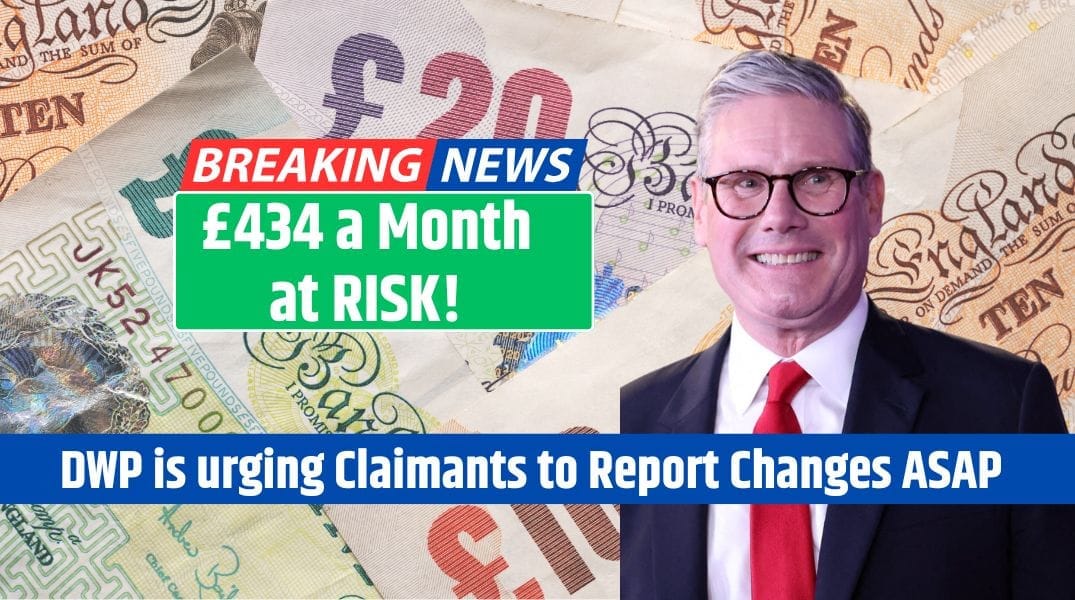The Department for Work and Pensions (DWP) has faced fresh criticism for its handling of pension policies, particularly the communication of changes that have left pensioners financially disadvantaged. The Parliamentary and Health Service Ombudsman (PHSO), Rebecca Hilsenrath, condemned the department, stating it is “failing to learn from its mistakes.”
This statement follows the case of an 82-year-old pensioner, Adrian Furnival, who lost £3,000 annually after changes to his Adult Dependency Increase (ADI) payments were inadequately communicated.
Financial Impact
The DWP discontinued ADI payments in 2020, impacting thousands of households. However, while pensioners residing in the UK were informed about the changes in 2010, Mr. Furnival, who has lived in France since 1994, was not informed until 2018—two years before the payments stopped.
Mr. Furnival stated the news came as a shock, leaving him and his wife Sheila, 67, with no time to prepare for the shortfall of approximately £70 a week. He shared that earlier notice could have allowed them to plan or seek alternative income sources.
Ombudsman’s Findings
The PHSO found the DWP at fault for its failure to notify Mr. Furnival in a timely manner. It recommended:
- Apology: The DWP must issue a formal apology to Mr. Furnival.
- Compensation: Mr. Furnival received £675 for the “injustice” caused.
- Comparable Remedies: The DWP is expected to provide similar compensation to others in similar situations who come forward.
The Ombudsman stressed the damage caused by poor communication, highlighting how it erodes trust in public services.
Broader Context
This criticism follows earlier findings of maladministration regarding how the DWP communicated changes to the state pension age for women born in the 1950s, commonly referred to as the WASPI case. Although the department apologized, it declined to offer full compensation, citing the £10.5 billion cost as disproportionate.
The failure to adequately communicate ADI changes has amplified scrutiny on the DWP, with advocates urging affected individuals to contact the department.
Who Was Affected?
ADI was a supplement for households where the primary earner reached state pension age, but their partner had not. In 2019, 10,817 people were still receiving ADI, a year before it was phased out. The total number of affected individuals, particularly those living abroad, remains unclear.
Pensioners’ Frustration
Mr. Furnival’s case underscores the frustrations many pensioners feel toward the DWP. He described years of inadequate communication, noting delays of up to nine months for replies and a lack of clarity throughout the process.
He said, “If they had told us at the same time as everyone else, we could have had eight more years to plan. By 2018, we had no way to replace that income.”
DWP Response
A spokesperson for the DWP stated, “We are committed to supporting all pensioners, both in the UK and abroad, and we keep our processes under constant review. We will be considering what we can learn from this report.”
Next Steps
The Ombudsman urged anyone who believes they were similarly affected by the ADI changes to contact the DWP. Ensuring timely communication and rectifying past mistakes will be critical for the department to rebuild trust with pensioners.
SOURCE – LINK
FAQs
What is the ADI payment?
ADI was a supplement for households where one partner reached state pension age.
Why is the DWP under criticism?
For failing to inform pensioners of payment changes on time.
What did the Ombudsman recommend?
An apology and compensation for affected pensioners.
How can pensioners report similar issues?
Contact the DWP to raise concerns or request compensation.
What was the WASPI case?
It involved maladministration of state pension age changes for 1950s-born women.


















They won’t stop till all pensioners get nothing.It is fraud in its its highest level. Goverment start NI contributions a tax that was supposed to be saved as we paid into it all our lives for us to live off interest in our older years.The goverment then used our savings,even though we paid into system now we are classed as on a benefit.That is a disgusting slur on us.Younger people had choice of how saved for pension,we did not.I fume when young labour ministers say we should have looked ahead and were stupid not to save for it.We had no choice money taken.Now even pension we paid for being stopped or cut as benefit budget to high,but they are adding migrants onto benefits so they can make immigration costs look smaller.I have one question I’m 67 born in leicester whilst at school idi Amin struck ,so these refugees are now pensioners how will they be distinguished from us when labour put all refugees and migrants before us.